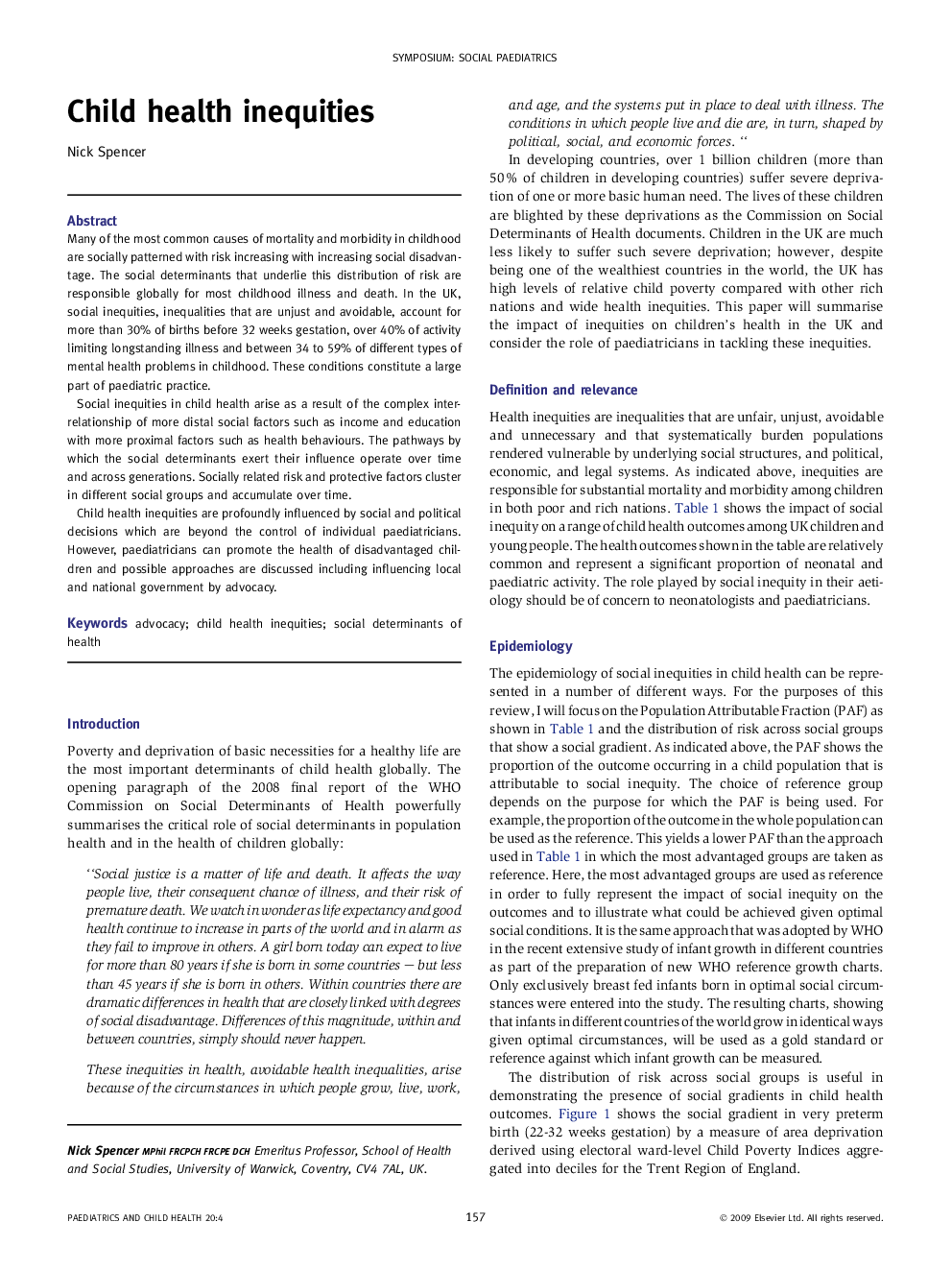| Article ID | Journal | Published Year | Pages | File Type |
|---|---|---|---|---|
| 4172646 | Paediatrics and Child Health | 2010 | 6 Pages |
Many of the most common causes of mortality and morbidity in childhood are socially patterned with risk increasing with increasing social disadvantage. The social determinants that underlie this distribution of risk are responsible globally for most childhood illness and death. In the UK, social inequities, inequalities that are unjust and avoidable, account for more than 30% of births before 32 weeks gestation, over 40% of activity limiting longstanding illness and between 34 to 59% of different types of mental health problems in childhood. These conditions constitute a large part of paediatric practice.Social inequities in child health arise as a result of the complex inter-relationship of more distal social factors such as income and education with more proximal factors such as health behaviours. The pathways by which the social determinants exert their influence operate over time and across generations. Socially related risk and protective factors cluster in different social groups and accumulate over time.Child health inequities are profoundly influenced by social and political decisions which are beyond the control of individual paediatricians. However, paediatricians can promote the health of disadvantaged children and possible approaches are discussed including influencing local and national government by advocacy.
